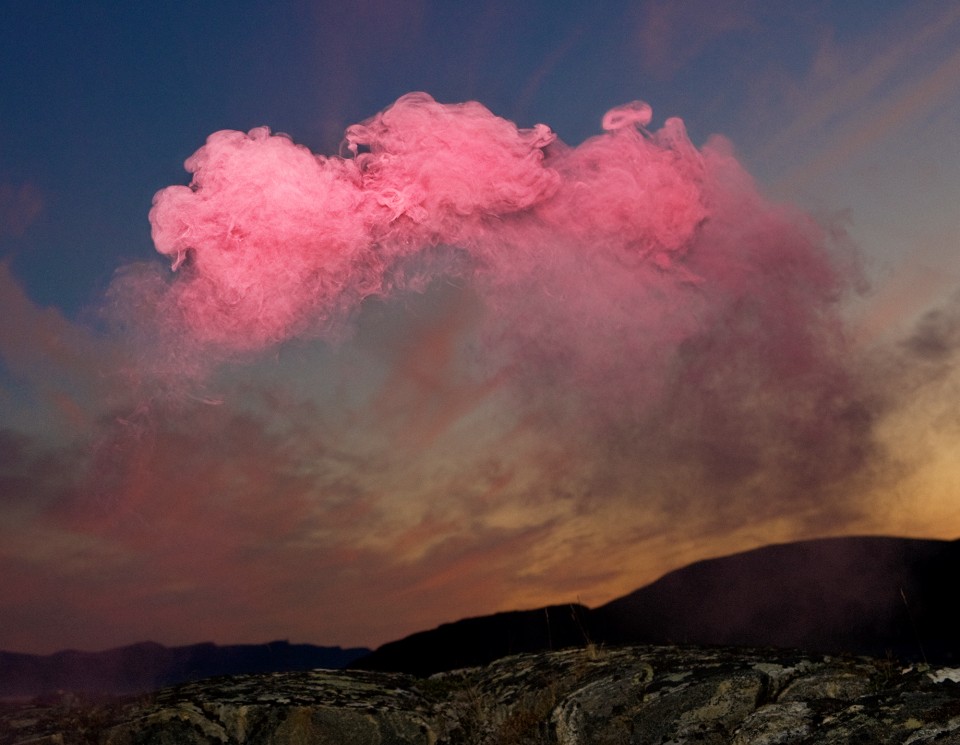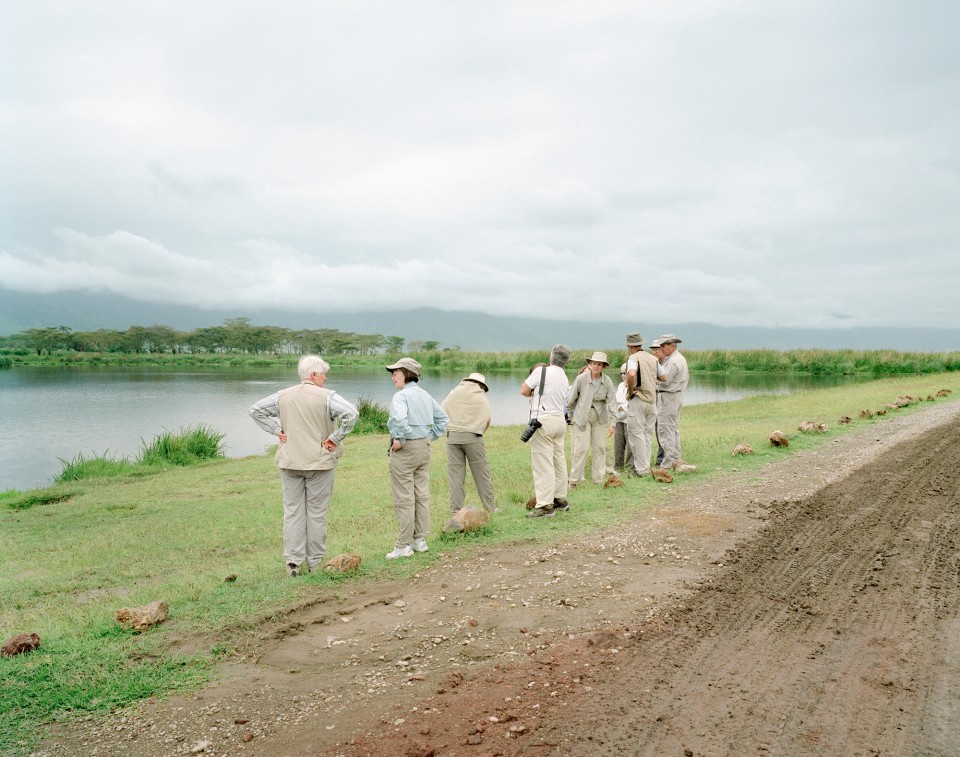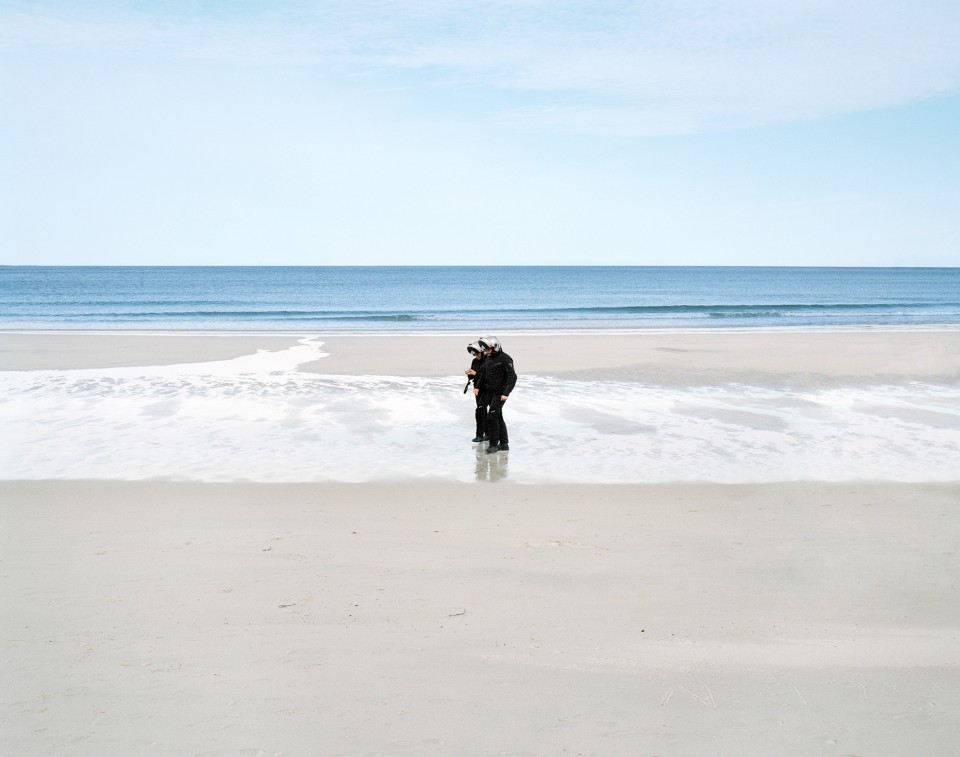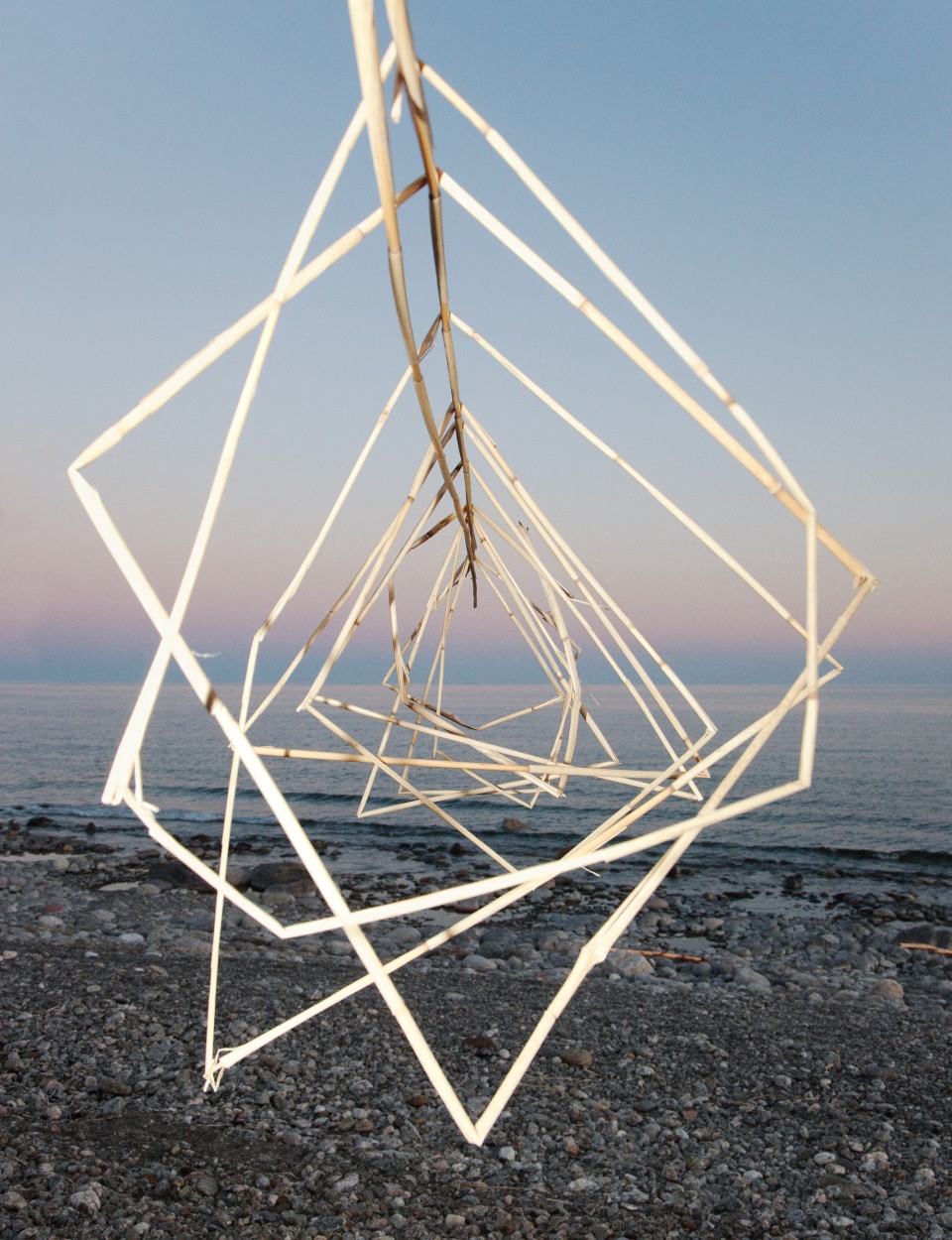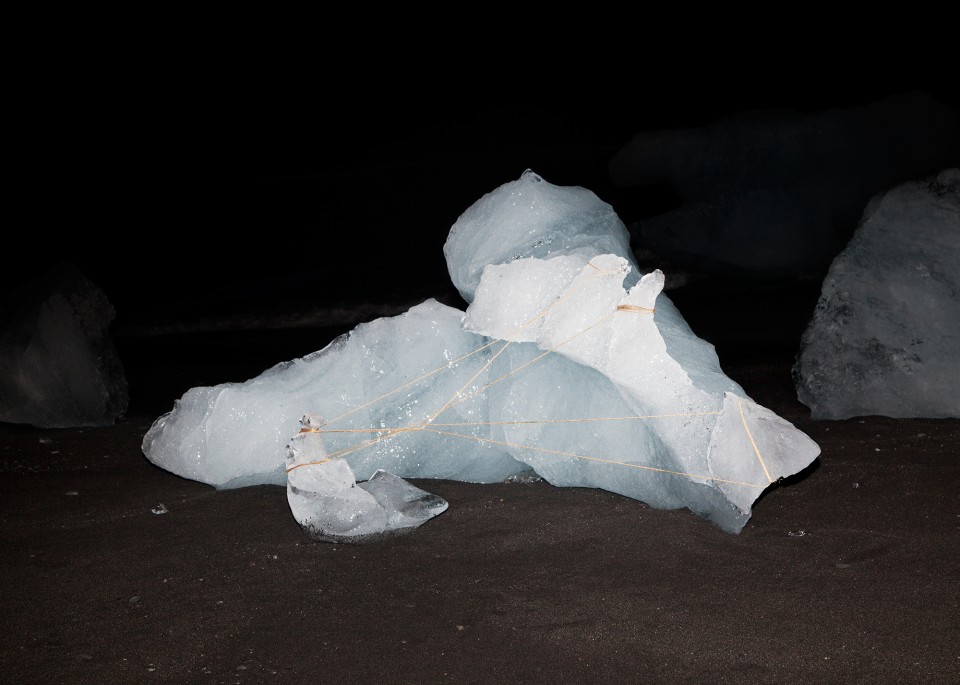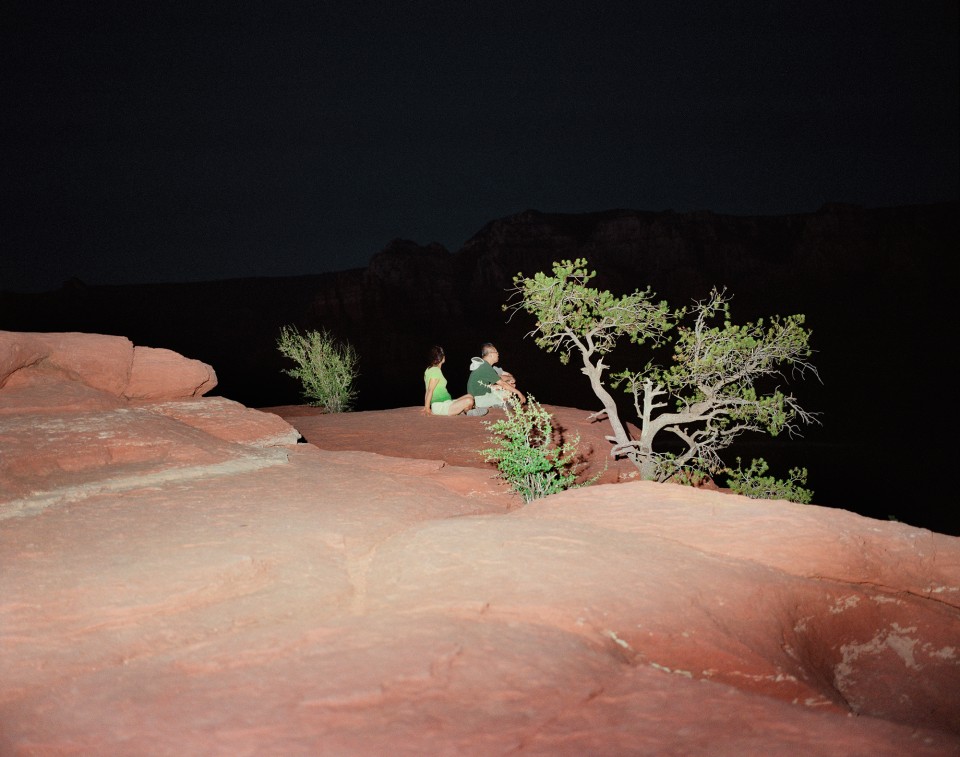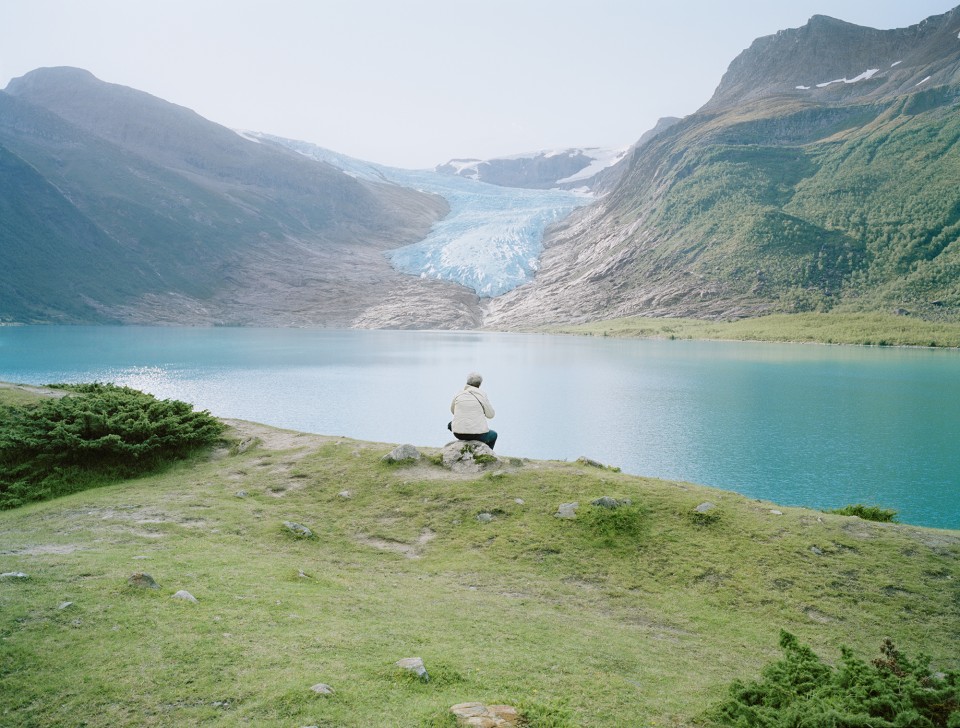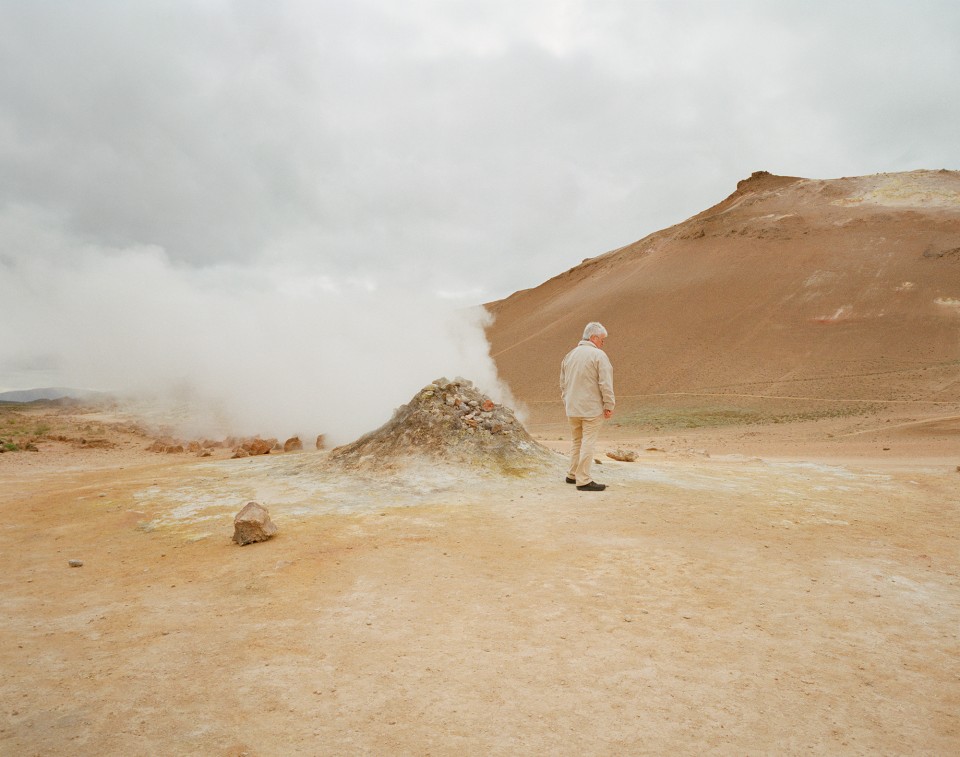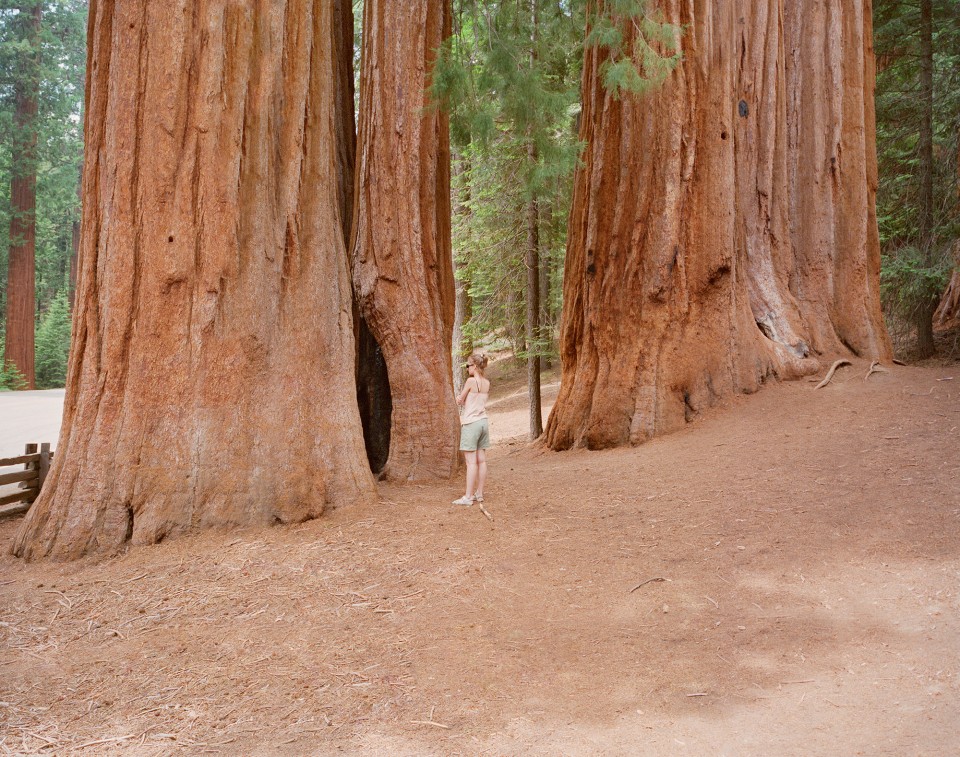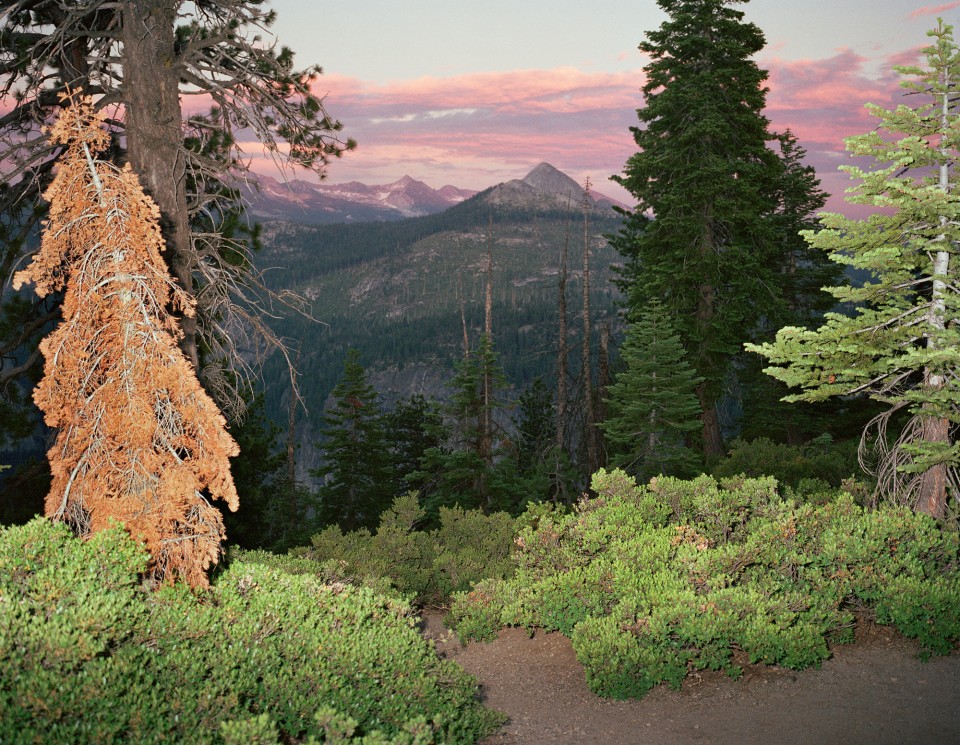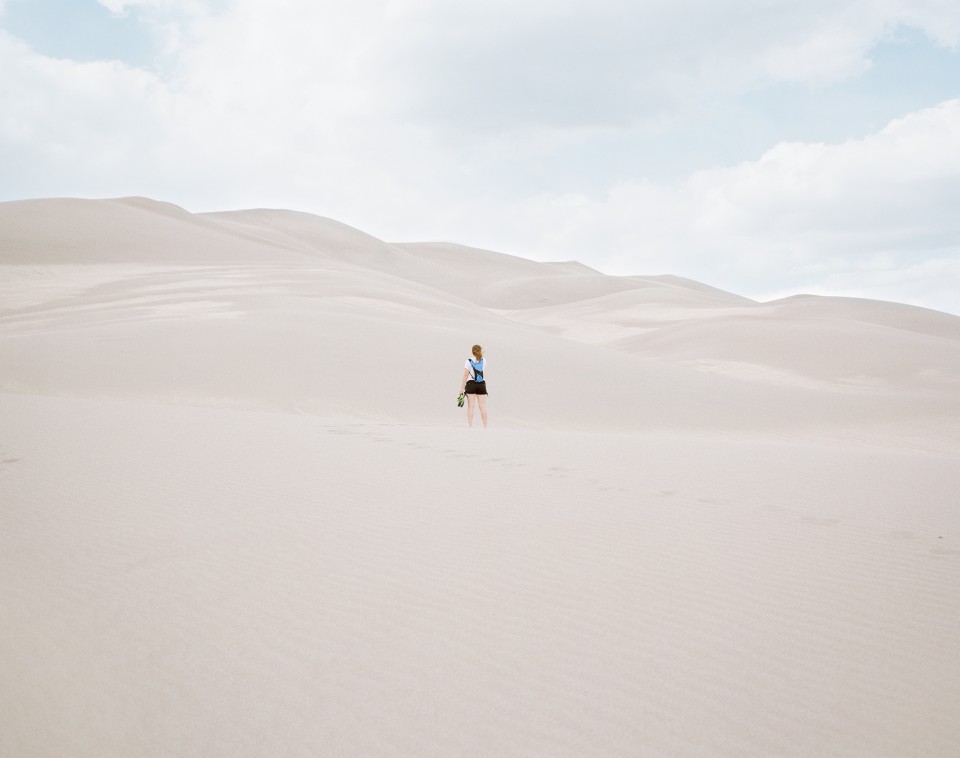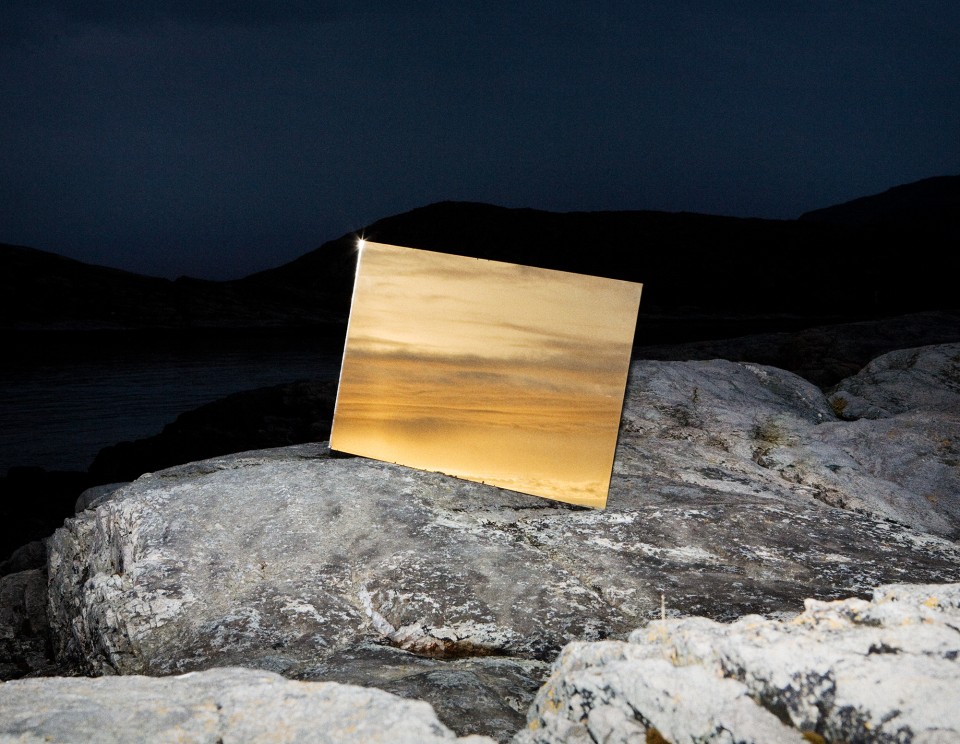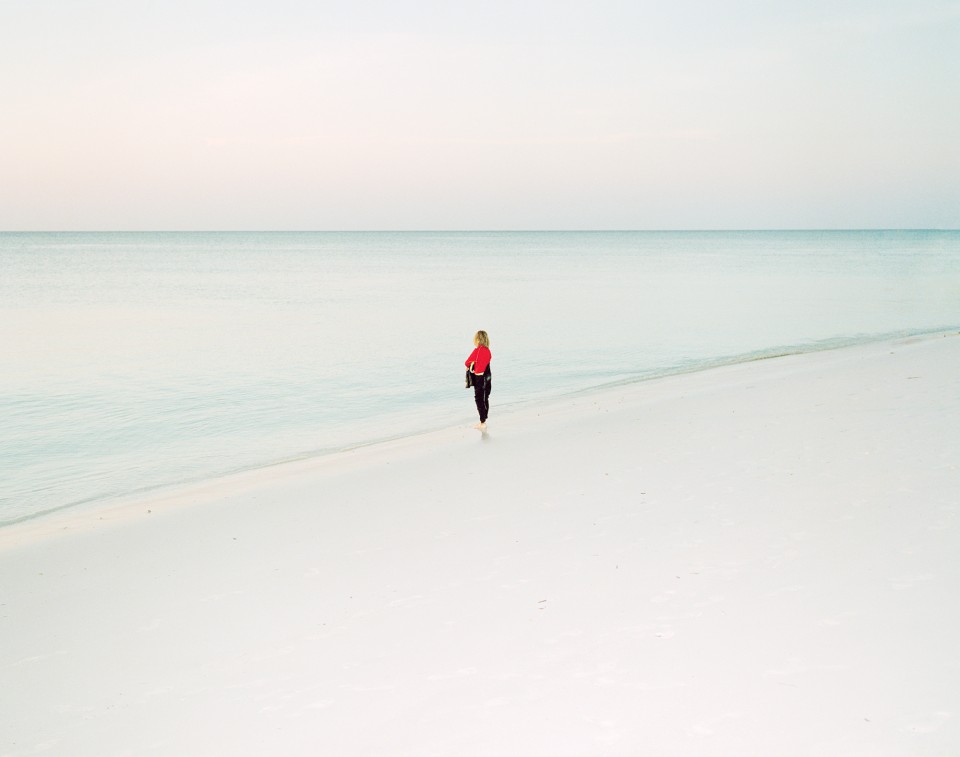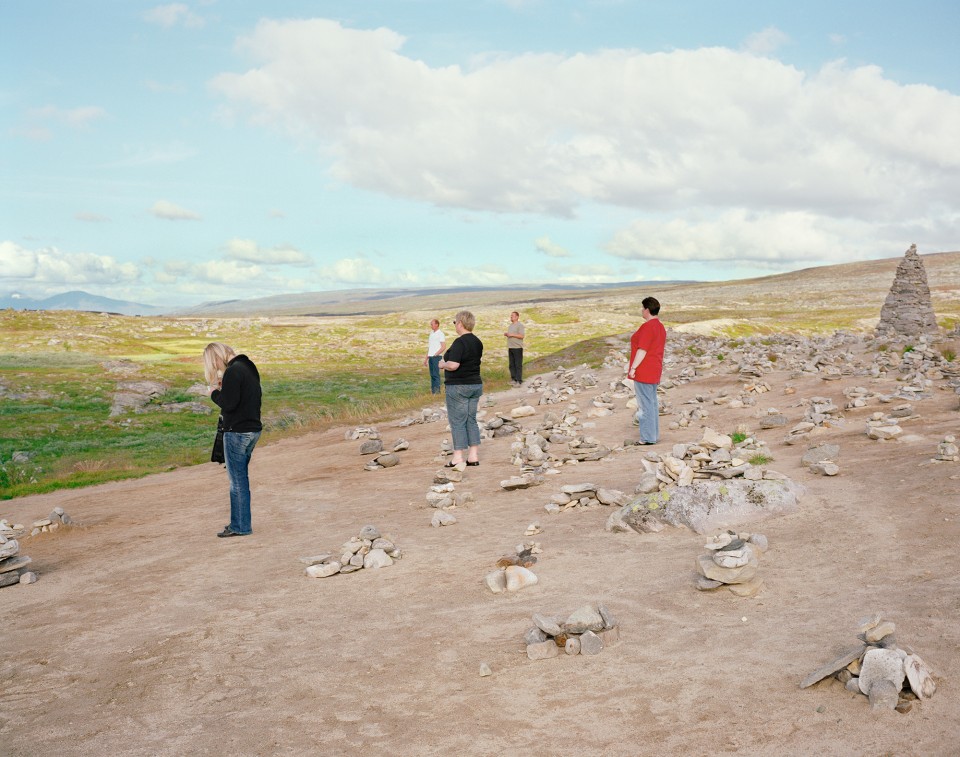Human experience lives in the supranatural space between solid realities and phantasmic imaginings. Mind and eye vie, play, and ultimately blur as matter turns to memory, and memory affects encounters. These are the transformative moments when fantasy magics the tangible into the metaphysical.
A surprise of great beauty; an exhilarating, fearful moment; rapt awe; and a happy conversation between a human and nature is revealed in sweeping tableaus, lush color fields, and small, but undeniably engaged individuals, couples, and groups. Whether deeply involved in the conversation, or expectant that it will happen, the subjects bare a desire for this connection.
Patterns in the actions and aesthetics of Lindergård and Holmström´s wayfarers reinforce these moments of fundamental rapport. Subconsciously blending with their new environments, many wear the colors that surround them. Others wander off alone, freezing in the face of a handsome view or inviting curiosity. Some gather together, forming constellations that map topographies. These habits, set in big landscapes with radiant color schemes, iconize the subjects as testaments to primal bonds.
Lindergård and Holmström give us more than observation of experience – they seem to divulge what, and how, their subjects see. Those images without people might embody individual impressions – micro views of realities extended and accentuated. A deep-red rock oozes fluorescent sherbet, or the remnant goo of melted sun. Icy pink stalactites stand guard at the entrance of a Yeti’s playfort, or double as the maw of some ancient sea monster. As wonder overcomes time and place, Lindergård and Holmström invoke the abiding mysticism inspired by human-nature relationships.
From Of Great Wonder by Alexxa Gotthardt
